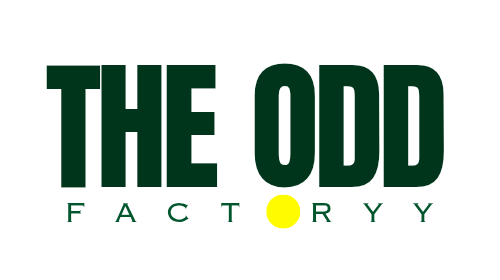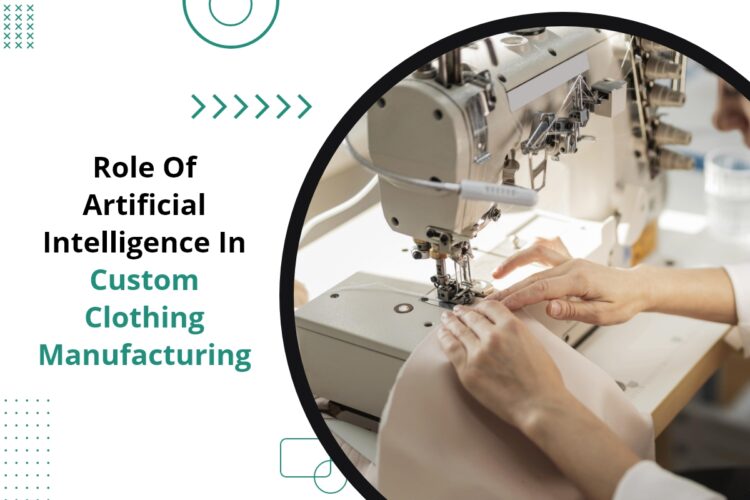In recent years, the role of artificial intelligence in clothing manufacturing has become increasingly significant. With advancements in technology, artificial intelligence has revolutionized the way we manufacture clothes. The use of AI in clothing manufacturing has transformed the entire manufacturing process, from design to production, and has made the process more efficient and cost-effective.
This blog post aims to explore the role of artificial intelligence in clothing manufacturing and how it is transforming the industry with its revolutionary automation capabilities, faster production cycles, and enhanced customer experiences.
How AI is being used in fashion?
Artificial intelligence in fashion is revolutionizing the way the fashion industry operates. From predicting fashion trends to enhancing the customer experience, AI is being used in various aspects of the fashion industry.
AI-powered chatbots are being employed to provide personalized recommendations to customers, and virtual try-on tools are allowing customers to virtually try on clothing before making a purchase. AI algorithms are also being used to analyze consumer data and predict fashion trends, which helps designers to create collections that cater to consumer demand.
Furthermore, AI-powered robots are being used in garment manufacturing, improving efficiency and reducing costs. It is clear that the adoption of AI in the fashion industry is transforming the way designers create, manufacturers produce, and customers purchase fashion.
Role of AI in Custom Clothing Manufacturing
At The ODD Factory, a custom clothing manufacturer in Sydney, we have started incorporating Artificial Intelligence (AI) into our production processes to improve efficiency, reduce costs, and enhance the overall quality of our products.
AI algorithms can analyze customer data, such as body measurements and personal preferences, to create accurate and personalized designs. This technology can also optimize fabric usage and cut down on wastage, making the manufacturing process more sustainable.
Additionally, AI-powered machines can handle repetitive and labor-intensive tasks, freeing up human workers to focus on more complex and creative aspects of the production process. As the demand for custom clothing continues to grow, AI is becoming an increasingly important tool for manufacturers to stay competitive and meet customer expectations.
Advantages of AI in Custom Clothing Manufacturing
At The ODD Factory, a bespoke clothing manufacturer in New York, we are leveraging the power of artificial intelligence to streamline our manufacturing process while also offering personalized and unique experiences to our customers.
AI allows for accurate measurements and precise cuts, ensuring that every piece of clothing is tailored to fit perfectly. This results in a reduction of material waste and production time, ultimately leading to cost savings for both the manufacturer and the customer.
Additionally, AI can analyze customer data and preferences to create customized designs and recommendations that cater to their individual needs. Overall, the integration of AI technology in custom clothing manufacturing is revolutionizing the industry by improving efficiency, reducing costs, and increasing customer satisfaction.
FAQ’s
How artificial intelligence can help fashion brands be more sustainable?
Artificial intelligence (AI) can help fashion brands become more sustainable by optimizing product design, material selection, supply chain management, and circularity. AI can provide valuable insights and tools that can help fashion brands reduce their environmental impact, increase efficiency, and meet consumer demand for sustainability.
What is the role of artificial intelligence in fashion?
Artificial intelligence (AI) has an increasingly important role in fashion, from product design to supply chain management. AI can help fashion companies analyze consumer data, identify trends, optimize production processes, and improve sustainability. By leveraging AI, fashion brands can enhance the customer experience, increase efficiency, and remain competitive in a rapidly changing industry.
What is the role of artificial intelligence AI in personalized marketing in the fashion and apparel industry?
Artificial intelligence (AI) plays a crucial role in personalized marketing in the fashion and apparel industry. By analyzing consumer data, AI can understand individual preferences, purchase history, and behavior patterns, enabling fashion brands to create targeted and personalized marketing campaigns. AI-powered recommendation engines can suggest products based on the customer\’s browsing and purchase history, leading to higher customer engagement and sales. Additionally, AI can help fashion brands optimize their marketing strategies, increase efficiency, and reduce costs.
Is AI the future of sustainable fashion?
AI is considered to be a potential solution for sustainable fashion in the future. By providing valuable insights and tools, AI can help fashion brands optimize their product design, material selection, supply chain management, and circularity. With the fashion industry\’s growing focus on sustainability, AI has the potential to play a significant role in reducing the environmental impact of fashion and making it more sustainable.
Can AI design clothes?
AI can design clothes with the help of machine learning algorithms that can analyze large amounts of data on consumer preferences, trends, and styles. AI-powered design tools can generate unique patterns, colors, and styles based on this data, which can help designers create new collections efficiently. However, AI-generated designs are not a substitute for human creativity and expertise, and human designers are still needed to oversee the creative process and ensure that the designs align with the brand\’s vision and values.
Conclusion
The role of artificial intelligence in custom clothing manufacturing is rapidly evolving and has the potential to revolutionize the industry. AI-powered solutions are transforming the way clothing is designed, manufactured, and sold.
With AI, it is now possible to create custom-fit clothing for every individual, improve the speed, and accuracy of production, and reduce waste. As technology continues to advance, we can expect to see even more innovation in the world of custom clothing manufacturing, making it more efficient, sustainable, and accessible to everyone.



